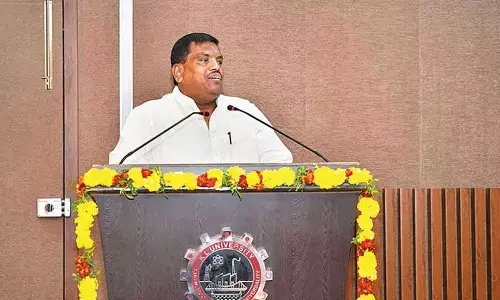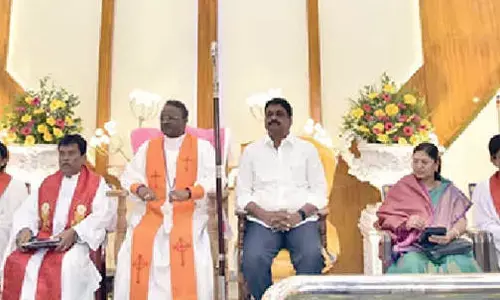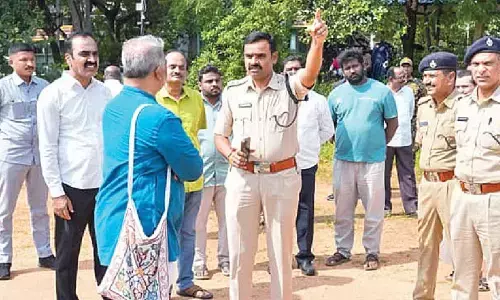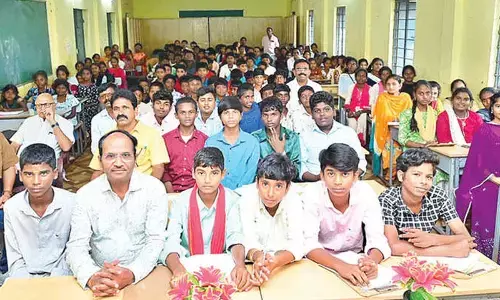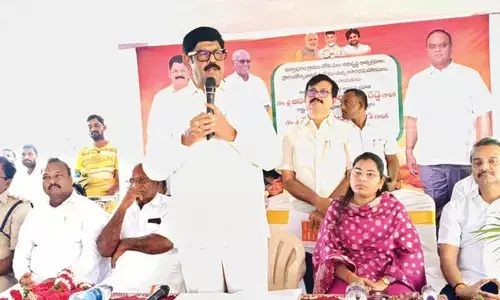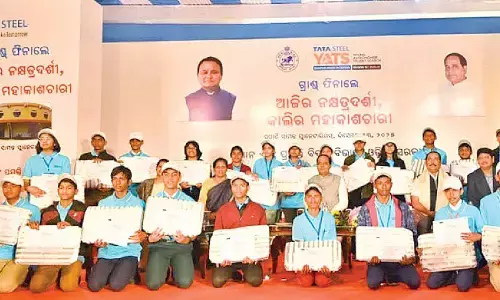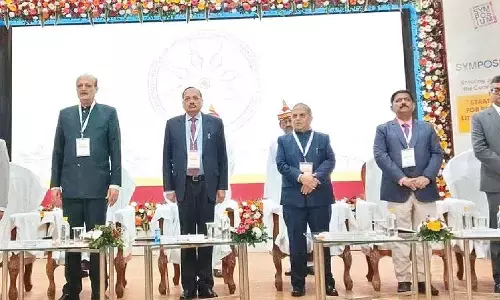FM's 'India@100' doesn't address 'India@ 75' woes of salaried class
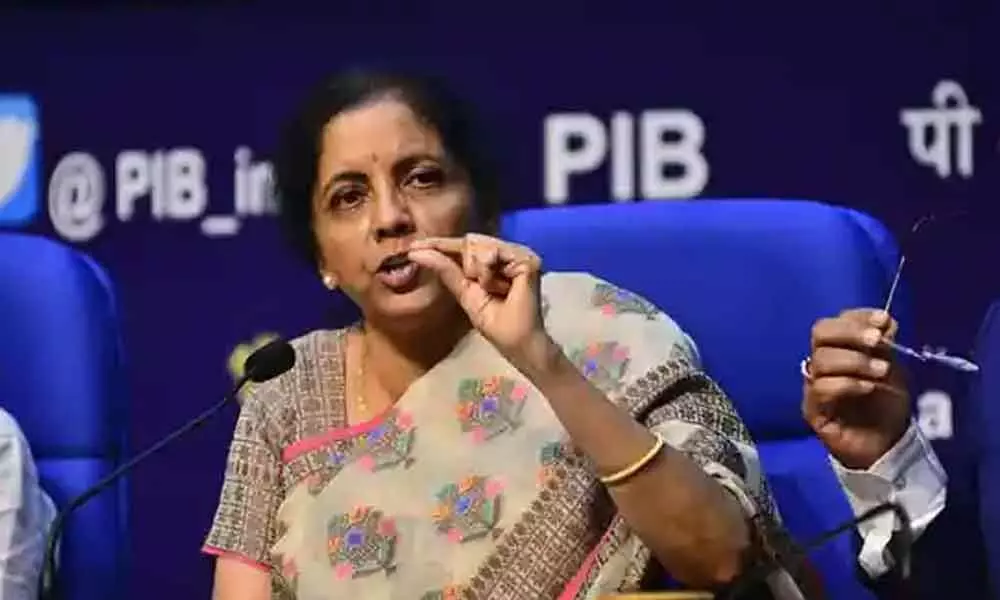
Finance Minister Nirmala Sitharaman
Finance Minister Nirmala Sitharaman said in Parliament that the Union Budget 2022-23 seeks to lay the foundation and provide a blueprint of the economy for the next 25 years, from 'India at 75' to 'India at 100'. She called the 25 years as the 'amrit kaal (golden period)'
Finance Minister Nirmala Sitharaman said in Parliament that the Union Budget 2022-23 seeks to lay the foundation and provide a blueprint of the economy for the next 25 years, from 'India at 75' to 'India at 100'. She called the 25 years as the 'amrit kaal (golden period)'.
She may have promised an 'amrit kaal', but isn't the future built on the present? India at 75, the 'achhe din' (good days), may have become a cliche, and for the common salaried person, the 'amrit kaal' seems akin to a fantastically written film script.
The Covid-19 onslaught accompanied by the economic downturn has drained common folk of their savings, derailed their daily expenses and affected their long-term plans for the future. Amid all this, Sitharaman's Budget fails to lift the spirits.
For the leaders, whether in the ruling party or the opposition, the words 'amrit' and 'andha kaal' (dark days), may be up for play in Parliament, but for salaried persons, the 'andha kaal' seems to be never-ending and the 'amrit kaal' far away.
The expectations from this Budget this year were high. The salaried class thought there might be some relief in these Covid-impacted times, but their wishes didn't turn out to be horses.
Their expectations were hinged on the Assembly elections in the five states, as people assumed that relief and relaxation will be the usual course. Far from being populist, the Modi-led government produced a Budget that analysts hail as futuristic. Experts may have their observations and analyses, but for the common person, today is not easy as the battles seem to be getting tougher.
Sitharaman had some good words for the 'aam aadmi' taxpayer: "The relief is that the tax slabs have not been changed."
These words have certainly come as an assurance to the millions of tax-payers who have been struggling to save money in the wake of fluctuating inflation. But the Budget has done nothing to relieve the stress of rising expenditure, decreasing savings, shrinking jobs and the feeling of economic uncertainty. Sitharaman may believe that no disturbance in the tax structure can lower the ever-increasing squeeze on the 'aam aadmi', but the ground reality is very different. In a post-Budget survey by IANS-CVoter, which was based on interviews with approx. 1,200+ randomly selected respondents across all demographics, 60 per cent respondents said this Budget will push up their monthly expenses, 44.1 per cent said prices (inflation) will "not at all" come down after this Budget, and 44.1 per cent said the quality of life in the next one year definitely will deteriorate. Such findings mirror the general distress within the people of all ages and classes.
The people, especially the middle class, have been struggling with lower incomes and high expenditures. The soaring prices of even basic foods and other necessities have weighed heavy on pockets. The year gone by witnessed the prices of vegetables reaching sky high. Tomatoes in November 2021 were selling at Rs 100/kg. Onions took a long time to stabilise and are now selling at around Rs 40/kg.
As vegetable prices seemed to be going awry, those of fruits, pulses, grains, and so on were also fluctuating mostly towards the upper end of the graph. The Economic Survey 2020-21 suggested that the Centre must formulate strategies to improve the availability of onions and tomatoes, especially during the lean season.
Similarly, the prices of every item, whether of daily consumption or other commodities, kept on climbing higher the whole of last year. To add to the woes are the ever-increasing prices of fuel, cooking gas cylinders and even PNG. Petrol prices crossed the Rs 100/litre mark in several cities in the country and diesel prices too have reached unprecedented heights, thereby adding to the overall cost of living.
With Covid striking hard, the medical expenses have gone up for almost every family in the country. Many families exhausted their savings and some even had to resort to crowdfunding to meet high hospital bills.
Last year's heavy economic squeeze had raised expectations of common folk that Sitharaman would come up with a Budget that would pass some kind of relief on to them. But this has not happened.
The Finance Minister has focused on the economic imperatives and there is no hint of populism or giveaways for even the largest state of Uttar Pradesh, which is headed for elections. The government has plans to build the future and create jobs in the infrastructure sectors, organic farming along the river Ganga, strengthening the MSMEs, and many other projects, which are long-term and laudable. Sitaraman said the government went in for a Budget that would stand for continuity, which will be bringing in stability to the economy and predictability in taxation, and also a vision for India at 100.
But, today at 75, the people reeling under the pandemic needed a lenient hand and the Budget seems to be too far-sighted for their comfort.








